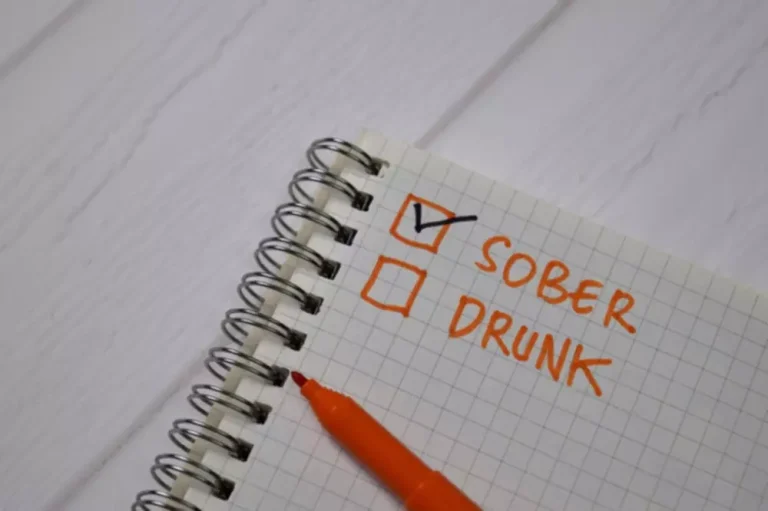- January 31, 2023
- Posted by: admin
- Category: Sober living

That’s why it’s essential to seek professional support when alcohol shakes begin. To avoid the more concerning symptoms—and to kick your alcohol dependence—it may be in your best interest to go through a medical detox program. To that end, alcohol shakes—also known as “tremors”—can take many different forms, and it often occurs during the alcohol detox process. Typically, people tend to label someone with the shakes as an “extreme” AUD sufferer, most likely in their later years of alcoholism. While this can certainly be the case (due to delirium tremens, which we’ll talk about further down), it is paramount that people understand how alcohol shakes manifest. These tremors can be a sign or symptom of binge drinking, excessive alcohol use over time, alcohol-related brain damage, liver disease, and withdrawal.
- Odds in your favor and, over time, the alcohol withdrawal shakes will most likely subside.
- We strive to create content that is clear, concise, and easy to understand.
- There are other causes of tremors due to alcohol but typically, it’s rooted in the brain.
- But when a chronic drinker suddenly quits drinking, the brain continues to function as if alcohol were present.
Build a Support Group
You may contact our specialists with questions or to schedule an intake assessment. Once this program has been completed, usually the alcohol shakes will have subsided immensely. Dependent on the patient, the dwindling of their shakes can take a bit longer, but eventually the CNS regains its stability. Additionally, the clinicians will monitor the alcohol shakes, ensuring that the proper treatment is given if they persist (which can happen).
Symptoms of Alcohol Withdrawal: Timeline and Signs of Danger

There are many support options available that can help guide you through alcohol withdrawal, as well as abstaining from alcohol after withdrawal. However, medical complications can occur during the acute phase of withdrawal. However, try not to have too many firm expectations, as symptoms can continue for multiple weeks in some people. During the 12- to 24-hour time frame after the last drink, most people will begin to have noticeable symptoms. These may still be mild, or the existing symptoms might increase in severity. There is no exact timeline for alcohol withdrawal, and individual factors, such as the level of dependence on alcohol, will influence it.

How to Deal With Alcohol Withdrawal Shakes
In this article, we will explore why you may feel a little shaky after drinking. You’ll also learn about signs of alcohol abuse and addiction and where to find treatment. Being that alcohol shakes are usually tied to alcohol use disorder, most addiction specialists will chart a course of recovery that extends well after the medical detox period. While we’ll address that further down, it’s important to mention that, during detox, the alcohol shakes will usually increase in intensity. If you’re currently dealing with shakes or other alcohol withdrawal symptoms, then read on to learn how to get rid of them. It’s important to note that while the shakes are a distressing symptom, they are a sign that the body is attempting to readjust to the absence of alcohol.

However, it is important to note that shaking after drinking does indicate that you’re drinking too much. Damage to the cerebellum from drinking usually takes about 10 years to occur and shows up on an MRI as shrinkage in the cerebellum. It is believed to be caused by the toxic effects alcohol has on the brain plus nutritional deficiencies (particularly of the B vitamin thiamine) common in alcoholism. Other symptoms of alcohol-related cerebellar dysfunction how to stop alcohol shakes can include poor coordination and balance, clumsiness, an unsteady walk and involuntary back-and-forth eye movements known as nystagmus. Some individuals also develop damage to the peripheral nervous system, which may cause muscle weakness, numbness, tingling and burning pain in their extremities known as peripheral neuropathy. I’ve spent the last seven years researching and understanding alcoholism, addiction, and how people get sober.
Most commonly occurring during the withdrawal phase, they can also manifest after particularly heavy drinking sessions. Most people find that alcohol withdrawal shakes resolve within a few days of abstaining from alcohol. However, it’s important to note that the cessation of shakes does not mean one has recovered from alcohol addiction. Professional assistance and ongoing support are often necessary to manage withdrawal symptoms effectively and address underlying issues. To understand what causes alcoholic shakes, you first have to understand what happens in the body when you drink alcohol. Alcohol is classified as a nervous system suppressant, which means it slows down your nervous system.
Is AA a Selfish Program?
Individuals should be prepared to be uncomfortable during this period and have medical help available if needed. This is the period in which delirium tremens is most likely to occur, which requires immediate medical attention. If you or someone you know shows signs of delirium tremens, go to the emergency room immediately. If you are a heavy drinker and are experiencing a tremor or shakiness, you should consult with your physician or an addiction specialist.
- This makes the nervous system hyperactive, which may result in shakes or tremors.
- Typically manifesting within a few hours to a couple of days after the last drink, these tremors are characterized by involuntary shaking, usually of the hands, but can also affect other parts of the body.
- It can vary from person to person, but they are a common symptom of alcohol withdrawal.
- She has a strong work ethic and it’s not unusual for her to be up at the facility at 2am or on the phone all night helping guide our staff on how to best manage whatever situations come up.
- The timeframe can also vary from person to person, depending on how much alcohol is consumed and your body composition.
- Recovery tools are taught that provide access to stress reduction, anger management, conflict resolution, and relaxation enhancement.
- When you stop drinking, your body has to adjust to working without alcohol.
From 24 to 72 Hours
- While shakes can begin 5 to 12 hours after the last drink and are fairly common, DTs typically begin 48 to 72 hours after the last drink and are relatively rare.
- Alcohol-induced tremors, commonly referred to as “the shakes,” are rooted in the profound effects that alcohol has on the central nervous system (CNS).
- Because the liver can only metabolize so much ethyl alcohol the excess toxins that remain in the body gets absorbed into the brain and other organs.
- Delirium tremens is mainly characterized by tremors, hallucinations, disorientation, confusion, and increased heart rate/breathing rate/blood pressure.
After detox, continue to drink the recommended daily amount of water to energize body, improve kidney function, and improve bowel function. Therefore, detoxification under https://ecosoberhouse.com/ medical supervision is always the safest option. Medical and addiction treatment professionals can best determine the appropriate detox and follow-up treatment program.
Alcohol shakes vs. delirium tremens

If alcohol is interfering with your health or your personal, financial, or professional life, consider quitting. The best ways to prevent severe symptoms after you stop drinking alcohol are close supervision by your doctor and treatment that usually includes benzodiazepines. If you suffer from essential tremor and are looking for an effective solution, check out Cala Trio therapy. The first-in-class Cala Trio therapy offers individualized treatment for hand tremors with a wrist-worn device that sends electrical stimulation to nerves in the wrist. This stimulation is believed to help with tremors by disrupting the network activity that causes them.
Delirium tremens isn’t curable, but it can be treated to help you manage symptoms and avoid complications such as dehydration. This can disrupt the way the brain sends instructions to the muscles and nerves, causing symptoms such as tremors in the fingers or hands. Alcohol withdrawal may cause shakes when the effects of alcohol on the nervous system wear off, and the brain becomes overwhelmed by activity in the nervous system.
